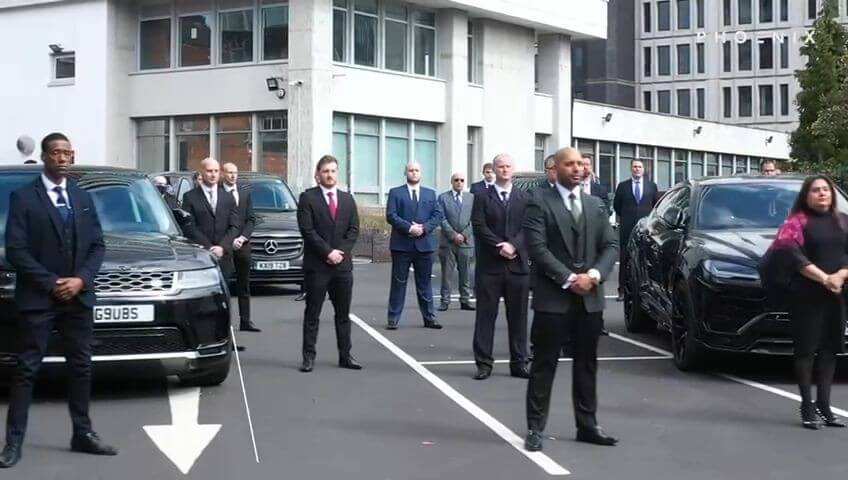
How to Get Close Protection Jobs: Skills, Training & Job Opportunities
- Posted by Phoenix
Close protection is a challenging and rewarding field that involves providing security and protection for individuals or groups in high-risk or volatile environments. If you’re interested in pursuing a career in close protection, you may be wondering what skills, qualifications, and experience you need to succeed. In this blog, we’ll explore the different types of jobs available, the skills required for success, and strategies for finding job opportunities and gaining experience in the field, without requiring a police or military background.
What is Close Protection and What Skills are Required?
Close protection involves providing security and protection for individuals or groups in high-risk or volatile environments. The skills required to succeed in close protection include:
- Excellent situational awareness: The ability to be alert and aware of your surroundings at all times.
- Physical fitness: The ability to be physically fit and able to carry out tasks such as running, lifting, and protecting others.
- Quick thinking: The ability to think on your feet in high-pressure situations and make quick decisions.
- Communication skills: The ability to communicate effectively and build rapport with clients and colleagues.
- Calmness under pressure: The ability to remain calm and composed in stressful situations.
The Different Types of Close Protection Jobs and Responsibilities
There are a variety of different close protection jobs available, each with its own set of responsibilities and requirements. Some of the most common roles in the field include:
- Personal Protection Officer (PPO): Responsible for providing security and protection for a single individual, such as a celebrity or business executive.
- Close Protection Officer (CPO): Similar to a PPO, but responsible for protecting a group of individuals, such as a touring band or business delegation.
- Residential Security Team (RST): Responsible for providing security and protection for a private residence or estate.
- Event Security: Responsible for providing security and protection for events such as concerts, sporting events, and political rallies.
Qualifications and Training Required for Close Protection Jobs
While police or military experience can be helpful, it is not a requirement for a career in close protection. To be considered for a job in close protection, you’ll typically need a combination of education, training, and experience. Some of the most common qualifications and training programs include:
- Close Protection Operative (CPO) Course: This is a comprehensive training program that covers a wide range of topics, including threat assessment, surveillance, defensive driving, and first aid.
- Security Industry Authority (SIA) License: In the UK, individuals working in close protection are required to hold an SIA license, which can be obtained by completing the CPO course and passing a background check.
Tips for Building a Network and Finding Job Opportunities in the Industry
One of the best ways to find job opportunities in close protection is to build a strong network in the industry. Some tips for building your network and finding job opportunities include:
- Attend industry events and conferences: This is a great way to meet others in the field and learn about new job opportunities.
- Join professional organisations: There are a number of professional organisations for individuals working in close protection, which can provide valuable networking opportunities.
- Build relationships with security firms: Many close protection jobs are offered through security firms, so it’s a good idea to build relationships with these organisations.
Strategies for Enhancing Your Skills and Gaining Experience in the Field
To succeed in close protection, it’s important to continually enhance your skills and gain experience in the field. Some strategies for doing so include:
- Pursue ongoing training: Take additional courses and training programs to enhance your skills and stay up-to-date with the latest industry developments. There are many online courses, workshops, and certifications that can help you develop specific skills related to close protection.
- Seek out mentorship opportunities: Find a more experienced professional in the field who can provide guidance and support as you build your career. You can reach out to your network, attend industry events, and join professional organisations to find potential mentors.
- Gain experience through volunteering: Consider volunteering at events or organisations that require security or protection services to gain valuable experience in the field. Many organisations, such as charities, religious organisations, and community events, may need security services, which can help you build experience and skills.
Conclusion:
A career in close protection is an achievable goal for anyone who has the skills and qualifications needed for the job. While police or military experience can be an asset, it is not a requirement for success in this field. By building a strong network, enhancing your skills, and gaining experience through training and volunteer opportunities, you can increase your chances of success and achieve your career goals in close protection. Remember that a successful career in close protection requires dedication, hard work, and a commitment to continuous learning and improvement.








